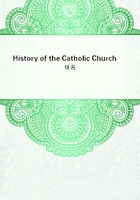
第183章
According to these reports most of the monasteries and convents were homes of sin and vice, and many of the monks and nuns were guilty of heinous crimes, but, though in particular instances there may have been some grounds for these charges, there is good reason for not accepting as trustworthy this account of monastic discipline. In the first place the royal visitors traversed the country with such lightning-like rapidity that it would have been impossible for them to arrive at a correct judgment even had they been impartial and honest men. That they were neither honest nor impartial is clear enough from their own correspondence. They were sent out by Cromwell to collect evidence that might furnish a decent pretext for suppressing the monasteries and for confiscating the monastic possessions, and they took pains to show their master that his confidence in them had not been misplaced. Their only mistake was that in their eagerness to black the character of the unfortunate religious they exceeded the limits of human credulity. They positively revelled in sin, and the scandals they reported were of such a gross and hideous kind that it is impossible to believe that they could have been true, else the people, instead of taking up arms to defend the religious houses, would have risen in revolt to suppress such abominations. Nor is it correct to say that the /Comperta/ were submitted to Parliament for discussion, and that the members were so shocked by the tale they unfolded that they clamoured for the suppression of these iniquitous institutions. There is abundant evidence to prove that Parliament was reluctant to take any action against the religious houses, that it was only by the personal intervention of the king that the bill for the suppression of the lesser monasteries was allowed to pass, and that it is at least doubtful if any but general statements founded on the /Comperta/ were brought before Parliament. The story of the production of the "Black Book" supposed to contain the reports is of a much later date, and comes from sources that could not be regarded as unprejudiced. It had its origin probably in a misunderstanding of the nature of the /Compendium Compertorum/, which dealt only with parishes of the northern province. It is strange that though the commissioners made no distinction between the condition of the larger and the smaller monasteries, the Act of Parliament based upon these reports decreed only the suppression of the smaller monasteries, as if vice and neglect of discipline were more likely to reign in the small rather than in the larger communities; and it is equally strange that the superiors of many of the houses, about which unfavourable reports had been presented, were promoted to high ecclesiastical offices by the king and by his vicar-general, who should have been convinced of the guilt and unworthiness of such ministers, had they trusted their own commissioners. In the case of some of the dioceses, as for example Norwich, it is possible to compare the results of an episcopal visitation held some years previously with the reports of Cromwell's commissioners, and though it is sufficiently clear from these earlier reports that all was not well with discipline, the discrepancy between the accounts of the bishops and the royal commissioners is so striking, that it is difficult to believe that the houses could have degenerated so rapidly in so short a space of time as to justify the /Comperta/ of the commissioners. But what is still more striking is the fact that after the decree of suppression had gone forth, other commissioners, drawn largely from the local gentry, many of whom were to share in the plunder of the monastic lands, visited several of the houses against which serious charges had been made, and found nothing worthy of special blame. These men were not likely to be prejudiced in favour of the monks and nuns. They were well acquainted with the people of the district, and had every opportunity of learning the verdict of the masses about the discipline of the religious communities. They were, therefore, in a much better position to arrive at the truth than the royal commissioners who could only pay a flying visit of a few hours or at most of a few days.[34]
The real object of the visitation and of the scandalous reports to which it gave rise, was to secure some specious pretext that would justify the king in the eyes of the nation in suppressing the monasteries and in confiscating their possessions. The idea that the monastic establishments enjoyed only the administration of their lands and goods, and that these might be seized upon at any moment for the public weal, was not entirely a new one either in the history of England or in that of some of the Continental countries. Years before, Cardinal Wolsey, for example, had dissolved more than twenty monasteries in order to raise funds for his colleges at Ipswich and Oxford, while not unfrequently the kings of England rewarded their favourites and servants by granting them a pension to be paid by a particular monastery. With the rise of the middle classes to power and the gradual awakening of greater agricultural and commercial activity, greedy eyes were turned to the monasteries and the farms owned by the religious institutions. Unlike the property of private individuals these lands were never likely to be in the market, and humanly speaking a transfer of ownership could be effected only by a violent revolution. Many people, therefore, though not unfriendly to the monks and nuns as such, were not disinclined to entertain the proposals of the king for the confiscation of religious property, particularly as hopes were held out to the nobles, wealthy merchants, and the corporations of cities and towns that the property so acquired could take the place of the taxes that otherwise must be raised to meet local and national expenditure.